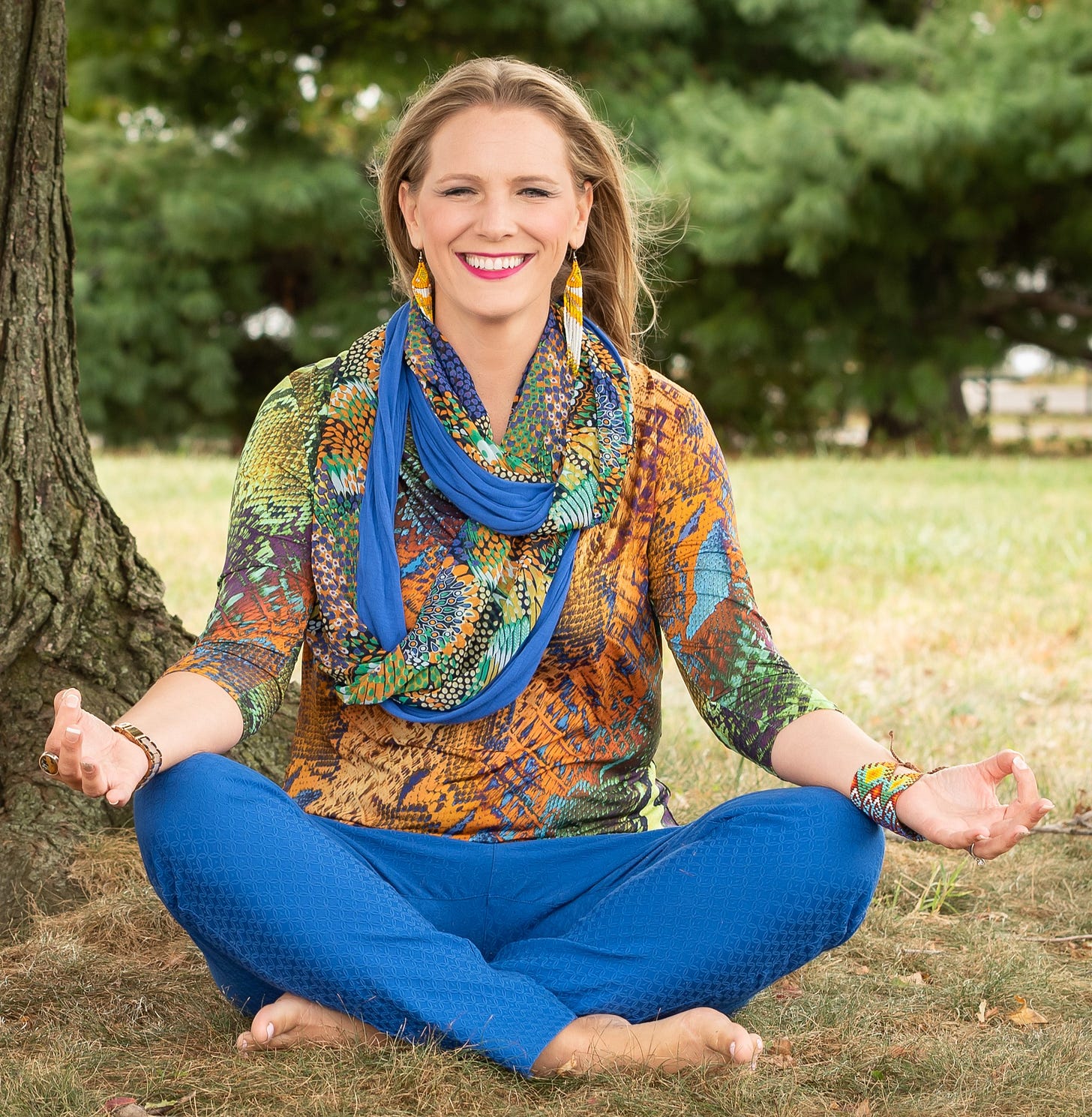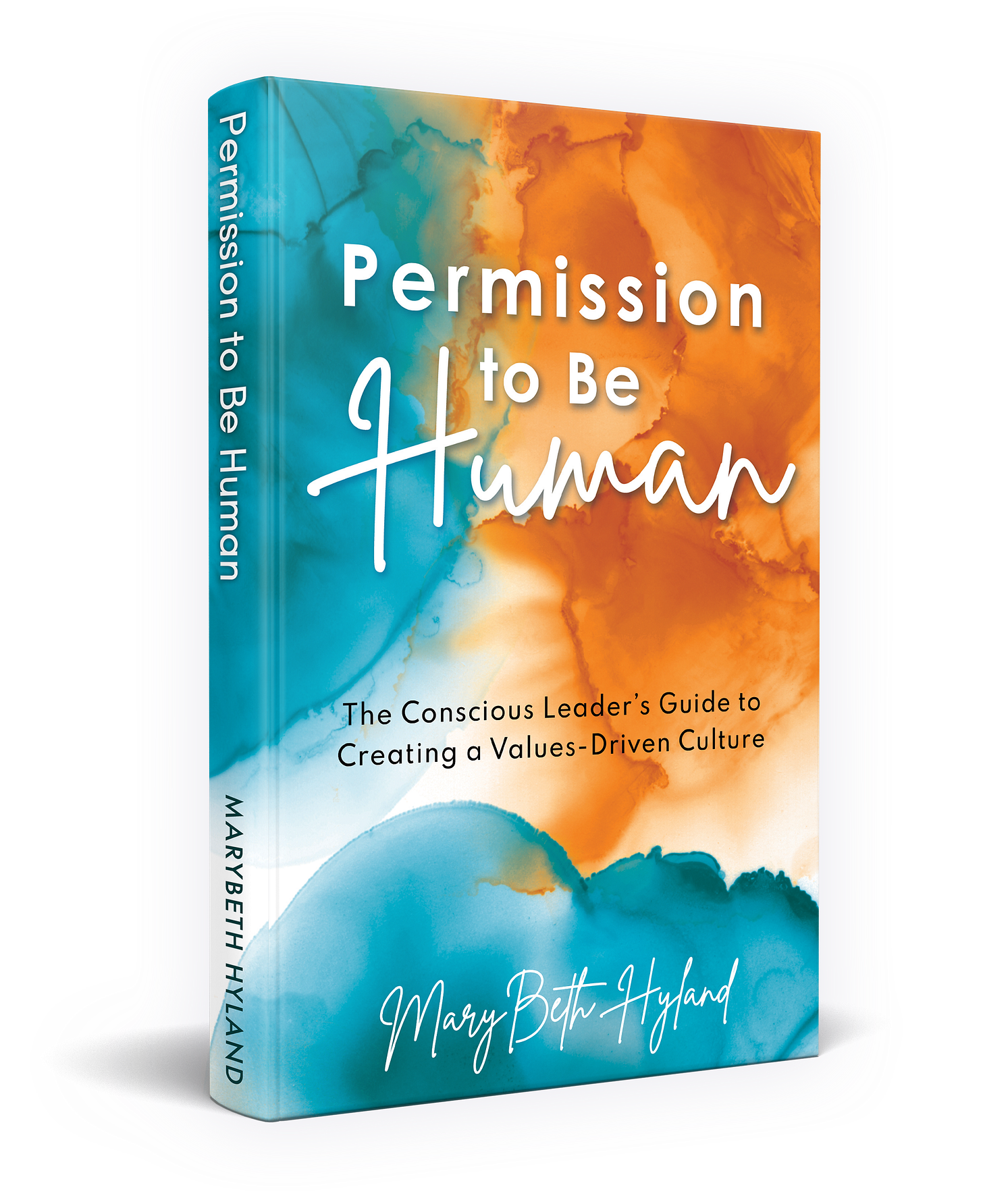Are You Giving Yourself Permission To Be Human?
Like many of us, Baltimore resident MaryBeth Hyland after months of pandemic restrictions is chomping at the bit to re-embrace a fully human lifestyle. As an advisor, coach, speaker, and author of Permission to Be Human: The Conscious Leader’s Guide to Creating a Values-Driven Culture, Hyland asserts that extraordinary success is rooted in the core tenets of vision, values, and culture.
“We’re right downtown, virtually a five-minute walk to the Baltimore Inner Harbor,” she says as a launching point into our early December call. “Being in the city has been a very interesting experience. Now I’m like ‘oh my gosh, I need to escape to the mountains. I need to be away from all the noise.’”
Given my own nomadic proclivities, I found myself resonating with Mary Beth’s pent-up desires for new surroundings; although, for me, it would likely be an urban center filled with bright lights and human energy.
As life starts to return to some sense of normalcy in Baltimore, MaryBeth and her husband James have been exploring the existential question of “why are we living in a city.” After much thought and reflection, they have concluded that a fresh start in a new locale would suit them well.
With that, MaryBeth excitedly announced to me that she and her husband are planning to make the migration to Salmon, Idaho next year to build a new lifestyle while opening up a retreat center.
“We’re embracing the “Tiny Home” movement and have purchased our first place. It will be our house to start but it’s ultimately going to be our first guest house along with the retreat center.”
She continues:
“We currently live in a Baltimore rowhouse which is not a huge space. But moving into two hundred square feet is dramatically different. My first thought is that this is going to be a really big challenge. But when we stayed in one, thank goodness they had them to rent with Airbnb, I didn’t want to leave. It was so beautiful.”
“Everything was so simple. It’s like, oh this is easy here because there’s no space for anything more than just simple. And the windows all around the place made it feel like you were one with nature the entire time. So it was like, ‘alright, I’m ready. We can do this.’”
At this juncture in the conversation, we turned to her book Permission To Be Human, which she affectionately calls a “love letter to any fellow humans who have felt like they were the underdogs for deeply caring about people and their well being at work.” In it, she asserts that when people are connected through shared values, there’s no limit to what they can achieve.
Over the years through retreats, workshops, and coaching, Hyland has helped empower leaders and their teams into a unified force for positive change. A certified mediator, mindfulness instructor, and core values thought-leader, MaryBeth engages with people worldwide, helping them illuminate possibility and ignite alignment by knowing, owning, and living their values daily.
MaryBeth says that her own personal experiences in feeling like a loner, lacking emotional engagement and reciprocation during her early formative years, have informed her life journey. She offers this thought:
“If we’re never taught to tap into who we are authentically then we’re simply making educated guesses on our life choices based on other people’s opinions of who they want us to be and what would make them feel proud of us.”
MaryBeth asserts that so many of us are living out the lives, careers, and titles that others have wanted for us without really questioning if that’s what we really want for ourselves. She says it is incumbent upon all of us to figure out what makes us truly feel a sense of purpose, alignment, and aliveness.
Before starting her advisory practice SparkVision in 2015, MaryBeth was working locally for United Way which at the time was the largest nonprofit in the world. In her words, she was proud to be one of their “kickass fundraisers.”
Later, MaryBeth was offered the opportunity to take on a leadership role there.
“I got the chance to take over that program and within a year membership quadrupled, and within a year and a half, the United Way worldwide system deemed it the best practice model globally for Young Professional Engagement. From this experience, I learned from this experience the importance of shared values and accountability and how that can create a sense of belonging and purpose.”
Many of these themes and messages are now captured in her book, one that serves as a ‘how-to” guide on fostering emotional intelligence within a workplace culture. The overarching aim? — helping each person within an organization understand their own humanity, the humanity of the team, as well as the company at large.
Says MaryBeth:
“The book really was, and is, something that’s been living inside of me for many years. I had been saying for at least the last four years that I was going to write a book. And then the pandemic hit and it was like, “well, what’s your excuse now MaryBeth.”
Now immersed in the writing process, she realized that the book presented a golden opportunity to teach others how to give themselves permission to be human. It was here that the following signature message became abundantly clear to her:
“You can’t really unconditionally give it to others if you don’t give it to yourself first. The aim then became how do we create these systems and processes within organizations in alignment with these values to truly honor our human experiences at work.”
Asked about how the title of the book was derived, she had this to say:
“David Swirnow, the CEO of Shirnow Building Systems, one of my long term clients in the construction industry, remarked about our partnership in a meeting, ‘your work (MaryBeth) has given us permission to be human, and I didn’t know that was possible here.’ It was so significant that team members repeated the phrase back so that we could all let it sink in. We knew it was the whole point of doing the work and feeling proud of its influence. His vulnerable and genuine sharing inspired the title of this book.”
MaryBeth reflected on how the book came out at a time when she and her husband began their quest to move off the grid and build a retreat center. She says that it’s so rewarding to know that thousands across the world are now able to access and gain from it. As she reminds us in her book…..
“.......we’re human beings, not human doings, and that our greatest well-being emerges when we choose to become conscious through inner stillness. And then finally “human” is the great bond between us. We have loads of differences but significantly more similarities in our human experience. When we share our life experiences, we inevitably find that we are all connected.





